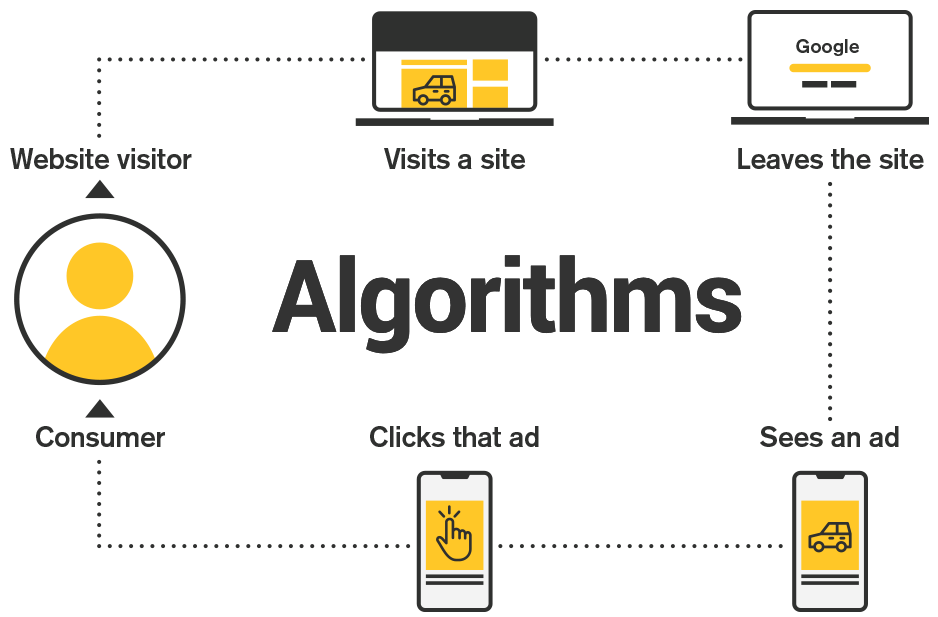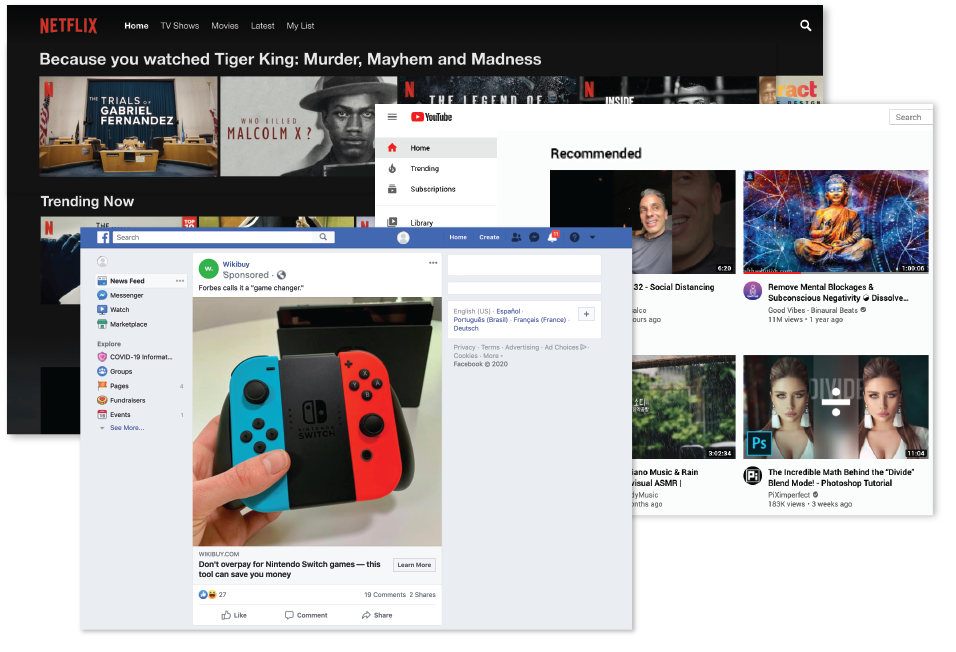A confusing info environment
Anyone who is curious about media should frequently ask questions like these, especially about what they encounter in social media:
-
How did this get here?
-
Why am I seeing this?
-
Why is this advertisement next to that article or post in my timeline?
-
Why is it recommended that I read this article or watch this video?
-
and many others.
The simple answer — an algorithm decided — hides a world of complexity. It’s also wrong in a way.

An algorithm is a guideline that explains how to get something done. You can think of a recipe, like “Amazing Roast Chicken,” as an algorithm. The specific ingredients (e.g. “one chicken” and “30 cloves of garlic”) and instructions (e.g. “bake until skin is crisp”) bring the algorithm to life, or in this case the dinner table.
In computers, algorithms are descriptions of how to get things done, converted into reality by software engineers who program the computers. That’s why it’s a mistake to say algorithms make the decisions — or it has been a mistake until lately — because humans come up with the algorithms and write the programming instructions. Machine learning, often called “artificial intelligence,” is taking us toward a time when machines themselves, based on earlier programming, will start making decisions on their own and writing new instructions. The implications of this go far beyond this course, but they are profound and fraught with consequences society needs to anticipate.
Computer algorithms are everywhere:
-
Google’s method for ranking results when you search for something
-
Netflix and YouTube’s video recommendations
-
What shows up, in what order, in your Facebook newsfeed
-
Why you keep seeing that advertisement for a pair of shoes
-
And much, much more.
Digital and social media tools make it possible for advertisers to target us in super-small categories and communities. The advertisements we see on a web page or social media feed are based on our own Internet use, so they don’t look exactly like anyone else’s. This means that bad actors can also try to manipulate us, too often successfully, based on algorithms you will never see.

We believe that technology and media businesses should be vastly more transparent about how they work.
Journalism organizations are making some progress in this area. We don’t see the same in technology, unfortunately.
